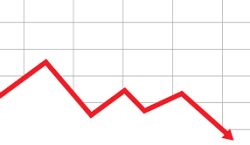

SMALL-SCALE miners, hit by new base minerals export blanket ban announced recently by the government, are seeking a six-month moratorium to fulfil existing supply arrangements with international buyers.
In a letter to President Emmerson Mnangagwa and copied to Mines minister Winston Chitando, the Zimbabwe Miners Federation (ZMF) president Henrietta Rushwaya said the unexpected Statutory Instrument (SI) 5 of 2023 — Base Minerals Export Control (Unbeneficiated Base Mineral Ores), in particular, in the export of raw lithium ore, had hamstrung miners’ operations.

Winston Chitando, Minister of Mines.
ZMF represents artisanal miners, small-scale miners as well as medium-scale mining ventures. SI (5) says: “No unbeneficiated base mineral ores shall be exported from Zimbabwe to another country except under written permit of the minister given in either of the following circumstances on written application to him by any miner or other interested person — (a) the export of any unbeneficiated base mineral ore”.
“We humbly seek your indulgence in the granting of a six-month moratorium on Statutory Instrument 5 of 2023. The unexpected ban has prejudiced standing off-take agreements between miners and international buyers, some of whom had taken loans from their respective countries to finance trade in these minerals,” Rushwaya’s letter read in part.
“Some miners have found themselves stuck with huge stockpiles thus locking cash flows and affecting operations.” She added that the temporary moratorium will unlock foreign currency earnings to boost market liquidity and expand the government’s revenue base through royalty fee payments and associated taxes.
“The establishment of processing plants takes of between six and to 12 months to commission. The current market for lithium is outside Zimbabwe and companies need to export the mineral to raise capital to build the plants.
“Livelihoods of small-scale miners involved in mining base minerals have been negatively impacted by the ban since the trading of the minerals was halted,” she added.

Zimbabwe Miners Federation (ZMF) president Henrietta Rushwaya
The mining of base minerals remains crucial for Zimbabwe and contributes significantly to the fiscus and as such, ZMF, still upholds and fully supports the value addition of these minerals. Speaking to the Daily News yesterday, Chamber of Mines of Zimbabwe president Colin Chibafa said while miners are alive to the government’s new thrust on lithium beneficiation, there was a need to accommodate the emerging concerns of the miners.
“Chamber of Mines is cognisant of the government’s new thrust on lithium beneficiation, which provides for the ban of exportation of lithium ores. We further note that the current producers are already exporting concentrates which are not covered by the ban. We have also noted that the new legislation provides for operators that would want to export unbeneficiated lithium ores to seek exemption from the minister of Mines.
It is our hope that this flexibility may accommodate unique situations in the lithium value chain, specifically considering that new entrants and other new projects may require such special dispensations to materialise,” Chibafa said.
Last year, the mining sector contributed over US$7 billion to the economy as the country chased its US$12 billion mining economy target by this year. The mining economy growth plan is part of the broader macroeconomic roadmap toward an upper middle-income economy by 2030. The multi-billion-dollar industry will be driven by gold, platinum, diamond, chrome, iron ore, coal, lithium, and other minerals.